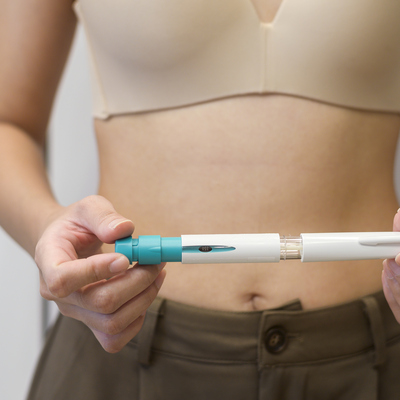Is Embryo Freezing Right For You?
The more you understand during your family-planning journey, the easier it is to decide between two seemingly similar processes. Enter: egg freezing and embryo freezing. They sound the same and share very similar processes, but the small differences can help someone understand which path is better for them. Dr. Jessica Rubin, a reproductive endocrinology & infertility specialist at Reproductive Biology Associates, emphasized this exact point while in conversation with Rescripted. What's the difference between egg freezing and embryo freezing? “Freezing eggs and freezing embryos are often confused as the same process, but they are in fact...
How Long Does IVF Take From Start to Finish?
For many couples, the fertility journey is a long and windy road. After countless tests, procedures, and hopeful moments countered by heartbreak, there are times when it feels never-ending. If you’re considering IVF, there’s a good chance you’ve already spent LOTS of time on the fertility journey… and want to know how much time IVF will add. In this article, we’ll give you a practical timeline for each part of the IVF process according to a reproductive endocrinologist. Dr. Jason Kofinas from Kofinas Fertility Group answers your question, “How long does IVF take from start to...
How Many Follicles Are Needed for IVF?
People often talk about how physically and emotionally taxing IVF is — as they should. The whole process is so intense and so completely consuming. But there’s one aspect that people don’t really touch on when they talk about the experience of IVF, and that's the mental load of it all. When you undergo any fertility treatment, the sheer amount of information that gets thrown your way is incredibly overwhelming. As you embark on the process, you learn details of your reproductive system and health you were almost certainly never taught before. And you have to...
When Victoria Raphael was diagnosed with breast cancer at 33, she was in “total shock” — which makes perfect sense. At 33, she certainly didn’t fit the profile of a typical breast cancer patient. Raphael didn’t immediately think about the need to consider fertility preservation ahead of treatment, but, as she quickly learned, that’s something many young breast cancer patients need to think about (on top of the realities of facing the disease, of course). “The fact that my fertility might be affected [by treatments for breast cancer did not cross my mind at all,” she...
Whether you’re just starting your fertility journey or you have completed multiple IVF cycles, it’s normal to feel a little overwhelmed with all of the information to consider and the unfamiliar medical lingo being thrown at you. We’re here to help you make sense of it all. Before we get into the side effects of Menopur, let’s explore its uses and how the medication actually works. What is Menopur? MENOPUR® (menotropins for injection) is a medication most commonly used during in vitro fertilization (IVF) to stimulate and develop your ovarian follicles, with the goal of retrieving...
Should You Genetically Test Already-Frozen Embryos?
PGT-A, or preimplantation genetic testing for aneuploidy, is a test that can be performed on embryos to see if they have the correct number of chromosomes. These embryos, also known as “euploids,” are more likely to lead to a successful pregnancy, which makes PGT-A a useful selection technique. PGT-A involves biopsying a tiny piece of a blastocyst, freezing the embryo, and sending the biopsy to a lab to have its DNA tested. Once the results are in, the embryo is thawed and transferred to the uterus. The decision to do PGT-A is usually made before an...
How Many Eggs Should You Freeze, Ideally?
When it comes to fertility preservation, you may already know that age matters. The number of eggs you are ultimately able to freeze will largely depend on how old you are and how well you respond to ovarian stimulation medications during IVF. But did you know it may be helpful to go into the egg-freezing process with some idea of how many children you’d like to have one day, ideally? While this number doesn’t have to be set in stone (because let’s be real, plans change), it can help you and your team of doctors come...
How To Advocate for Fertility Benefits at Work
The journey to building a family can be an emotionally and financially taxing one. Fertility treatments and procedures, while offering hope to many, can also pose a significant financial burden. Recognizing this, many employers are now providing fertility coverage as part of their employee benefits packages. This not only helps alleviate some of the financial stress for independent parents, but it also fosters a more diverse and inclusive workplace regardless of gender, sexual orientation, or single or partnered status. Sounds like a win-win, right? Well, not all companies have caught on yet. If that describes where...
What Is a 'Normal' Antral Follicle Count by Age?
You’ve probably heard of the term “ovarian reserve,” but maybe not “antral follicle count (AFC).” Well, put simply, AFC is another way to determine your ovarian reserve, and, in combination with bloodwork, it can provide a helpful snapshot of your fertility potential. So, how do you find out what your antral follicle count is and what it means for you? We spoke with Reproductive Endocrinology and Infertility Specialist Dr. Jessica Ryniec to help break it all down, so you know what all of the numbers and acronyms mean when you head to your next fertility appointment. ...
How Do You Know if You Have Ovarian Cancer?
Ovarian cancer is, put simply, when abnormal cells grow and multiply in the ovaries, destroying healthy body tissue. These cells can also originate in the fallopian tubes or peritoneum, the membrane that lines the inside of your abdomen and pelvis. The American Cancer Society predicts that nearly 20,000 women will receive an ovarian cancer diagnosis in 2023. Sometimes known as the “silent killer,” ovarian cancer ranks fifth in cancer deaths among women. One of the reasons this particular disease carries the unceremonious title of “silent killer” is because ovarian cancer isn’t always easy to detect. As...











